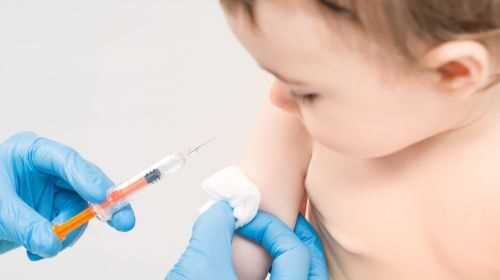Some adults avoid vaccination for fear of the injection. Some even faint while taking a blood sample. Read here how you can take away the fear of injections from children and what helps against injections phobia in adults.
Syringes are particularly pleasant for hardly anyone. That is why it is completely normal to have a queasy feeling before a vaccination or when drawing blood. However, some people develop a real fear of injections (trypanophobia). This phobia is disproportionate to the actual pain or risks of the injection.
Fear of syringes can lead to people avoiding all syringe situations and not going to vaccinations or medical checkups. However, this leaves them unprotected against infections from corona, measles or tetanus. Around 20 percent of children and adolescents are afraid of an injection and around three percent of adults. However, with age, trypanophobia decreases.
At a glance:
Causes of the fear of injections
Bad experiences are often a trigger for fear of injections or blood draws. Anyone who received a painful vaccination as a child has an increased risk of being afraid of the vaccination as an adult. If there were problems finding the vein or other complications, this can later lead to an injection phobia as well.
In some families, the fear of needles also occurs more frequently. However, anxious parents also make their children feel more painful when they are vaccinated. This allows the fear of needles to be passed on within a family. Some people are also concerned because they cannot see blood or because they are fundamentally concerned about their physical integrity. If someone suffers from a mental illness, this can also be expressed by panic during an injection.
Fear of syringes in children
Overall, children are more afraid of injections than adults. For them, the fear of pain is in the foreground. The smaller the children are, the greater the fear is usually. Because children feel pain more than adults. In addition, they are not yet able to assess the situation and do not understand the point of a vaccination or blood drawing. The more anxious and concerned the parents are before and during the doctor’s visit, the more pronounced the children’s fear. You cry and try to fight back against the syringe. Some children are more afraid of injections than of a subsequent operation.
Take away the fear of injections from children
Serenity helps: The more relaxed the parents or caregivers look towards the syringe, the calmer the children will remain.
Good preparation: Children feel more secure when they know what to expect. A picture book about vaccinations, the “vaccination” of the teddy with a syringe without a needle or explaining how vaccinations work and protect, calm you down.
Cuddling makes you strong: Physical contact and the security of knowing mom or dad by your side alleviate fears. Babies should therefore be held in your arms during the vaccination or blood draw, and small children on your lap. Older children can sit close to their parents and hold their hand.
Distraction works: Many children do not even notice the syringe when they are distracted. In infants, a visual or acoustic stimulus, such as the ringing of a bell, helps. Toddlers can count or speak a rhyme, older children can watch a book or a small video.
Small aids: Pain patches or creams that reduce the pain sensation locally relieve the pain when the needle is inserted. However, they have to be administered at least half an hour beforehand, because the effect is slow to come on. An ice spray acts immediately and numbs the area.
This shows a fear of syringes and needles
If someone is very afraid of a vaccination or a blood sample, the worry often dominates the mind days before a doctor’s appointment. Sleep problems and restlessness are the result. Shortly before the injection or the blood draw, the blood pressure rises and the heartbeat becomes faster. Then both suddenly drop – this can lead to fainting because the brain is no longer adequately supplied with oxygen. Anyone who has already experienced such a faint is sometimes ashamed afterwards and is particularly afraid of passing out again the next time.
Other signs of panic about injections:
Internationally, an injection phobia is classified as pathological if it lasts longer than six months and only occurs in connection with vaccinations, injections or blood drawing and in no other situations. The fear of the injection is not combined with other mental illnesses such as claustrophobia or bipolar disorder. Fear is pathological if it expresses itself with physical signs and is disproportionate to the actual dangers. It then leads to the fact that those affected avoid all situations with injections. Certain diagnostic criteria show whether trypanophobia is actually present.
What helps adults with fear of injections
Practically nothing can really happen with the prick through a syringe during a vaccination or while taking blood. If you are still afraid of the needle, the following tips can help:
A familiar doctor’s office with friendly, attentive nursing staff gives you the feeling of being in good hands.
If you have any concerns, inform the office hours help directly. Then everyone involved goes to great lengths to create a friendly atmosphere.
Fears in advance can be alleviated through exercise and relaxation techniques (autogenic training, meditation).
During the vaccination or blood draw, it can help to alternately tense and relax the muscles of the legs and the unaffected arm.
Focusing on deep, slow breathing is also relaxing.
Distraction works for adults too. This can be a conversation with the nursing staff, music to the ears or the mental planning of the next vacation.
Anyone at risk of fainting should sit or lie in a comfortable seat with a backrest during the vaccination or blood draw.
Anyone who develops great anxiety that lasts longer than six months should seek psychological advice. An injection phobia can usually be treated well with one to five sessions.
Those affected often deal with injections during treatment. They watch films of syringes, pick up syringes, stick them into a sponge or press them onto the skin without a needle.
Hypnosis can also help against a fear of injections.
If you face your fear and use calming methods or get professional help, you can look forward to a vaccination, such as against Corona, or a blood sample in the future.
.


